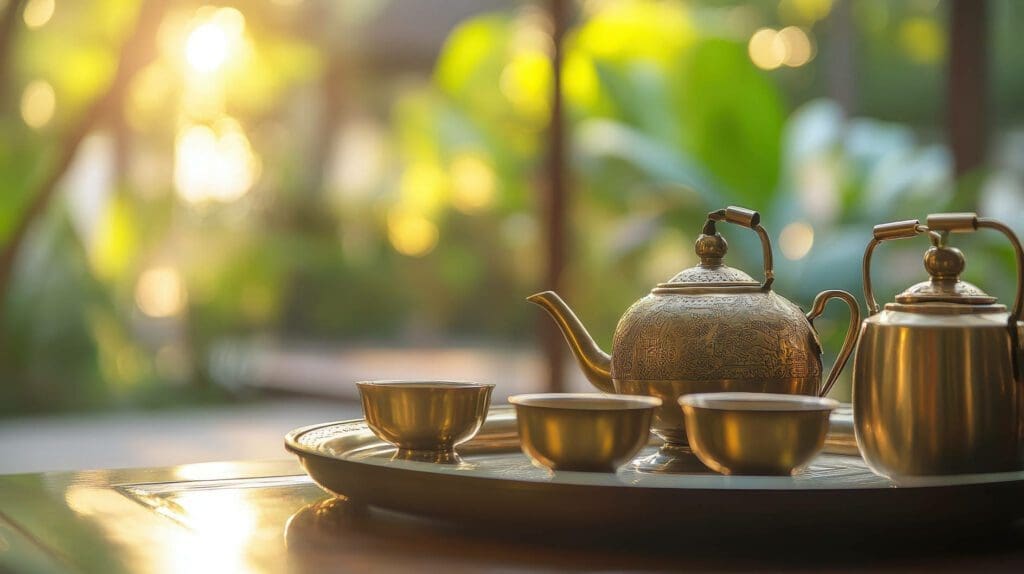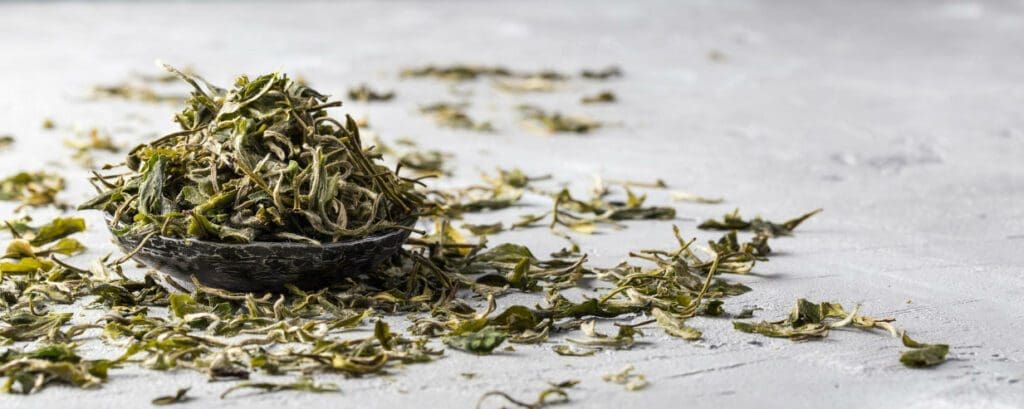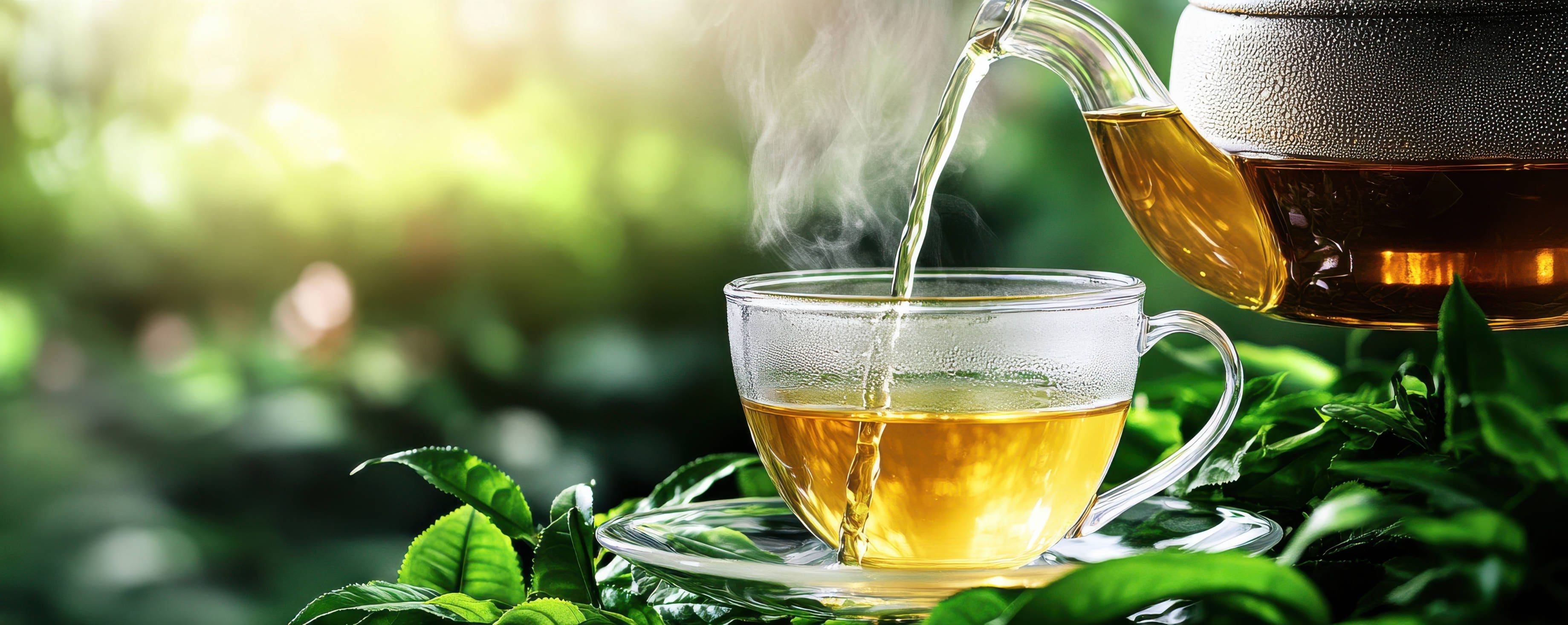
TeaTime, Infusion, Water: Tea or Coffee? What’s the Difference?
Drinking tea or coffee helps to hydrate the body. According to some studies, they may even hydrate us more efficiently than water in certain situations.
Tea and coffee have different effects:
- Tea helps us stay alert and focused.
- Coffee, on the other hand, tends to make us feel more energized and stimulated.
The difference comes from the compounds they contain:
- Tea contains theine, which is milder in comparison.
- Coffee contains caffeine, which is a stronger stimulant.
Because of this, it’s often recommended that people with depression or bipolar disorder avoid coffee and limit their tea intake, perhaps drinking only one small cup of tea in the early morning.
- From Wikipedia on Tea:
“Caffeine makes up about 3% of tea’s dry weight, which translates to between 30 and 90 milligrams per 250-millilitre (8½ US fl oz) cup depending on the type, brand, and brewing method. A study found that the caffeine content of one gram of black tea ranged from 22 to 28 mg, while the caffeine content of one gram of green tea ranged from 11 to 20 mg, reflecting a significant difference. Tea also contains small amounts of theobromine and theophylline, which are xanthines and stimulants, similar to caffeine.”
Individual Reactions Differ:
Everyone responds to tea and coffee differently. Some people can drink both without issues, while others are more sensitive and may experience side effects.
Interestingly, tea consumption can often be increased gradually. With time and adaptation, even sensitive individuals may find they tolerate tea better.
On this page, you’ll find tips to improve focus and attention, including how to slowly and safely increase your tea consumption.
Because tea is known for its health benefits, it contains various beneficial molecules that can help with detoxification, hydration, and overall wellness. It’s a virtuous habit when approached with balance

Side Effects of Tea Consumption
Drinking tea has mainly two side effects, which can be presented in the following order:
1. Sleep and Nervous System Effects
Ability to Sleep Properly
One of the main side effects of tea consumption is the impact of Theine, a stimulating molecule. When consumed in large amounts, it can cause nervousness and stress. Biologically, Theine (sometimes associated with caffeine) can reduce magnesium levels in the body. Think of it as depleting your internal “magnesium reserve.”
As Tea or Coffee intake increases, Magnesium decreases, which can lead to higher stress levels and poorer sleep quality. (Link)
High stress can cause us to wake up during the night, making it hard to fall back asleep. Mindfulness and breathing exercises are helpful tools to manage this. (Link)
Physical activity can also improve sleep. For example, exercise increases physical tiredness and reduces mental stress. Physical stress (From movement) encourages sweating, which helps eliminate toxins, supports liver function, and aids digestion.
2. Vitamin and Nutrient Deficiencies
Anaemia Iron Absorption and Vitamin Deficiency
Increased tea consumption may reduce iron absorption, leading to a greater risk of vitamin deficiencies, including anaemia. Tea contains compounds that inhibit iron uptake.
To counteract this, it’s recommended to eat vitamin C-rich fruits, as vitamin C improves iron absorption. This helps prevent deficiency-related fatigue. (Link) (Link)
Despite side effects, here’s how to gradually increase your tea consumption.
Despite these two potential side effects, it’s possible; By taking care of yourself and being mindful of your habits; To safely explore how tea fits into your routine, potentially improving both focus and well-being.
Your ability to consume tea depends on your body’s capacity to absorb the active compounds, such as caffeine and theine. It also depends on your lifestyle; Your diet, activity level, and overall health can influence how your body reacts to tea.
Awareness and Mood Regulation
When we begin drinking tea or coffee, it’s helpful to develop what’s called “Awareness.”
Awareness means being conscious of what’s happening inside and around us. It improves our ability to stay focused and notice emotional or physical changes; Such as irritability, mood swings, or sleep issues.
Awareness helps us step back and reflect on our behaviours. It doesn’t mean feeling less; rather, it’s the opposite of emotional numbness. It helps us feel and understand better.
Expression: “Having both feet on the ground” = Being present and grounded.
What is awareness exactly ?
Do you remember the scene in Mary Poppins where the characters float up toward the ceiling while laughing? Then they slowly come back down when they feel sad.
That floating sensation represents excitement or energy. The moment they realise what’s happening—that’s awareness. Awareness is recognising that something has changed in our internal or external world.
Sleep & Lifestyle
Sleep and Focus
Sleep is essential to build awareness and maintain the ability to focus. When sleep is disrupted, our concentration and emotional stability are affected.
Start by simply observing your sleep quality; Whether it’s good or bad. Life’s ups and downs naturally affect our sleep.
Factors like stress, activity level, and nutrition all influence sleep quality. (Link)
Technology and Sleep Monitoring
Today, it’s easier to monitor sleep using fitness trackers or smartwatches, which provide data on:
- Light sleep
- Deep sleep
- REM sleep
This information helps us better understand our sleep patterns and make changes if needed.
Hydration and Mental Health
Dehydration is known to increase:
- Irritability
- Stress
- Mood disorders
- Even mild hallucinations
Good hydration can help the brain recover, improving sleep and mental function. (Link)
Recovery and Long-Term Impact
A poor lifestyle can affect the body long term, and full recovery may take months or even years.
It’s commonly said:
It takes 6 months (or more) to recover from chronic stress, vitamin deficiencies, depression, or illness; Especially if daily self-care (sleep, nutrition) is also affected.
In some cases, like liver dysfunction, doctors may recommend dietary restrictions for up to 18 months to fully support healing.
Tea and Coffee: Energizing vs. Relaxing

Molecules in Tea:
When tea infuses, it releases two key molecules:
- Theine – a stimulant (promotes alertness)
- Tannins – calming (can induce sleepiness)
This means infusion time affects the effect of tea:
- Short infusion → more theine → more stimulation
- Longer infusion → more tannins → more relaxation
Tea packaging often suggests an ideal brewing time, which affects the balance between stimulation and relaxation. Some teas are naturally higher in one molecule than the other, influencing how they affect detoxification and relaxation.
How to Make Your Own Decaf Tea
To reduce the stimulating effect of Tea (Especially green tea), try this three-step infusion:
- Brew your Tea briefly in hot water (About 30 seconds).
- Discard the first infusion.
- Pour new hot water over the same tea leaves and brew again.
The majority of theine (Caffeine) is released in the first infusion. The second brew contains less of it and more tannins, resulting in a calmer tea.
(You might also find a use for the first infusion; Perhaps in cooking or skincare.)
Note: Green tea is one of the most stimulating teas and may disrupt sleep more than other types like black tea.
“Decaf Tea Options and Effects”
Some tea brands offer their own “Decaf” tea, which has a reduced level of Theine (Caffeine) by default.
There are two main methods to decaffeinate tea:
- Chemical processing
- CO₂ (carbon dioxide) exposure
Both methods reduce caffeine content, helping to avoid over-stimulation and lower stress levels.
However, the CO₂ method is considered healthier, as it preserves more of the beneficial molecules such as catechins and detoxifying compounds. In contrast, chemical processes may reduce some of these beneficial properties.
Note: Tea brands are required to indicate on the product packaging which decaffeination process of removing caffeine is used.
Blended Tea Varieties
Some tea brands offer blended teas that combine different varieties.
For example: The brand Dragonfly offers blends such as “Black tea with Rooibos” or “Moroccan Mint with Green tea”.
Rooibos is known for its relaxing properties and can balance the stimulating effects of black tea. These blends are great options for continuing tea consumption even during stressful periods.
In some situations, drinking tea can also help you relax; it’s not always stimulating.
Infusions and Detox Support
Certain herbal infusions also offer health benefits. Mint tea is known to support liver function and aid digestion. Adding lemon to hot water or black tea may enhance the detox process, especially after celebrations or heavy meals.
By keeping in mind to always consult your doctor if you have concerns about anaemia or possible side effects from herbal infusions, as some herbs may cause adverse reactions in high quantities.
Tea, Gut Health, Stress, and Sleep
How Diet Affects Mood and Stress?
What we eat or drink can significantly affect our stress levels and mood.
When you begin paying attention to your diet, you may notice that some foods irritate the gut more than others. On food packaging, look for allergens listed in bold (e.g., lactose in milk or yogurt, or gluten in wheat-based foods). These allergens can increase gut irritation, speed up digestion, and reduce vitamin absorption and hydration.
However, unless you have a diagnosed allergy or intolerance, it’s best not to completely eliminate entire food groups, as this can lead to nutritional imbalances.
For instance, following a strict gluten-free diet without medical necessity may increase the risk of certain other health conditions.
Gluten, Carbs, and Exercise
When increasing your physical activity, it is strongly recommended to retain fibre and carbohydrates; Including gluten-containing foods; In your diet.
Although gluten can cause dehydration in some people, carbohydrates are essential for muscle recovery during exercise. Professional athletes often pay close attention to their gut health, as maintaining digestive balance is crucial for performance and recovery.
It’s a delicate balance, like riding a bicycle: multiple elements must work together in harmony.
Importantly, gut balance also affects stress levels and sleep quality.
Sleep Aids and Medical Treatment
Sleep doctors may sometimes prescribe antidepressants or sleeping pills to improve sleep. However, whether or not medication is used, sleep quality can still be affected. (Link)
Many doctors now recommend avoiding sleeping pills when possible, suggesting gentler alternatives such as therapy, Thai Shi Suan, Yoga, or other Holistic methods.
The problem with medication is that it can mask the root cause of sleep disturbances, making it harder to address the underlying issue.
While medication can be beneficial in some cases, it’s important to complement treatment with natural or therapeutic methods whenever possible. It often comes down to goals, time investment, and personal health needs.
Food Diversity and Gut Bacteria
Maintaining dietary diversity supports a healthy gut microbiome. Even if certain foods cause minor irritation, balance is key.
As noted on other pages, overly restrictive diets; Such as completely avoiding gluten; Can increase the risk of other illnesses. (Link)
Managing Gluten Intake Naturally
One way to reduce gluten intake is to eat porridge in the morning. Oats contain a different form of gluten than wheat, which is better tolerated by the gut and is part of a group of prebiotics.
Be careful with muesli, as it can sometimes contain gluten (e.g., wheat flakes, barley, rye). Making your own mix by combining oats with your preferred ingredients gives you more control over daily gluten intake.
Sourdough or levain bread is also easier to digest and better tolerated by the gut. It is considered healthier than many other types of bread.
David Servan-Schreiber’s Nutritional Advice
In his book, David Servan-Schreiber recommends choosing:
- Wholemeal flour and wholemeal pasta
- Avoiding white flour when possible
This is based on the Glycemic Index (GI), which measures how quickly glucose enters the blood and cells. Whole grain flours have a lower GI, helping to:
- Reduce stress
- Minimize gut irritation
David, also explains:
“Say brown is beautiful: Eat your grains whole and mixed (wheat with oats, barley, spelt, flax, etc.) and favor organic whole grains when possible since pesticides tend to accumulate on whole grains. Avoid refined, white flour (used in bagels, muffins, sandwich bread, buns, etc.) whenever possible, and eat white pasta only al dente.”

Comments are closed